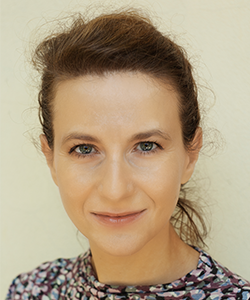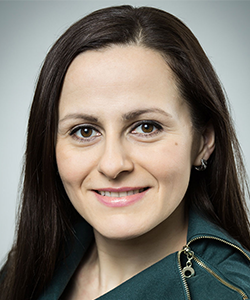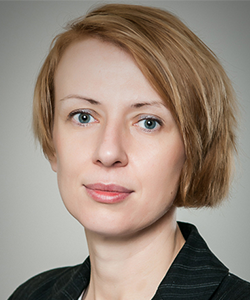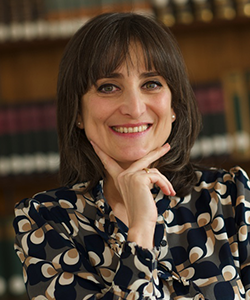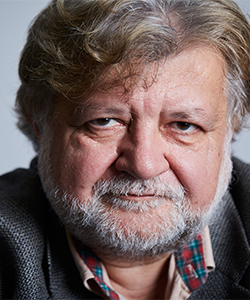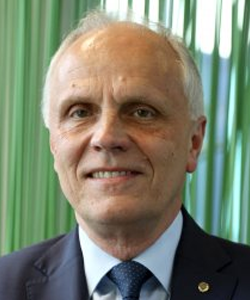 |
Prof. Andrzej JAJSZCZYK Andrzej Jajszczyk is Professor at the Department of Telecommunications, the AGH University of Science and Technology in Krakow, Poland and President of the Krakow Branch of the Polish Academy of Sciences. From 2011 to 2015 he served as the founding Director of the National Science Centre, a Polish research funding agency. He received Ph.D. from Poznan University of Technology in 1979. He was a visiting scientist at the University of Adelaide in Australia, Queen’s University in Kingston, Ontario, Canada, and Ecole Nationale Supérieure des Télécommunications de Bretagne, France. His major achievements in the theory of connecting networks include reformulation of Benes's theory of rearrangeable networks, complementing the theory by introducing a new class of repackable networks and proving nonblocking properties of a class of multiconnection networks. He also proposed some new structures of photonic switching networks and networks composed of digital switching matrices. He also contributed to the theory of network survivability and proposed new architectures and protocols for flow-aware networks. He is the author or co-author of 12 books and over 300 research papers, as well as 19 patents. He also published over 80 papers on research funding and higher education. He has been a consultant to industry, telecommunications operators, and government agencies in Australia, Canada, China, France, Germany, India, Poland, and the USA. He is 1998 IEEE Fellow, and was elected to the Polish Academy of Sciences and Academia Europaea. He was the founding editor of IEEE Global Communications and Editor-in-Chief of IEEE Communications Magazine. He was Associate Editor-in-Chief of CIC/IEEE China Communications. He held important positions in IEEE Communications Society, such as: Director of Magazines, Director of the Europe, Middle East and Africa region, Vice President – Technical Activities. In 2008, he received the Society’s Joseph LoCicero Award for Exemplary Service to Publications. The same year he received the Foundation for Polish Science Award. Professor Andrzej Jajszczyk is Vice-President of the European Research Council since 1 January 2021 and is responsible for the Physical sciences and Engineering domain. |
|
|
Mateusz GACZYŃSKI
Mateusz Gaczyński is deputy director in the Department of Innovation and Development of Ministry of Education and Science. In his current position he deals with research and innovation policy in national and European setting, including cohesion policy programmes and Horizon 2020 participation. |
|
|
Aneta BARKLEY
Aneta Barkley is a Scientific Officer at the European Research Council Executive Agency. She received her MA in Art History from Adam Mickiewicz University in Poznań, Poland and gained her PhD at the University of Liverpool. Her doctoral research was conducted in collaboration with the Foundation for Art and Creative Technology (FACT) in Liverpool as part of the AHRC-funded Collaborative Doctoral Awards programme. |
|
|
Magdalena CHOMICKA
Magdalena Chomicka, National Contact Point for Marie Skłodowska-Curie Actions and European Research Council (2015-2020 in the structures of the Institute of Fundamental Technological Research, since 2020, in the National Centre for Research and Development), member of the MSCA & ERC Programme Committees in Horizon 2020 and Horizon Europe. |
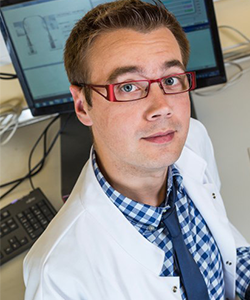 @ Fot. OneHD
@ Fot. OneHD
|
Krzysztof FIC
Krzysztof Fic graduated in Chemical Process Engineering at the Faculty of Chemical Technology, Poznan University of Technology in 2008, after the defence of his master thesis ‘Modelling of vapour-liquid equilibrium by artificial neural networks’. His research activities focused mainly on the electrochemical systems for energy conversion and storage, in particular on phenomena occurring at the electrode/electrolyte interface. The Ph.D. dissertation of Krzysztof Fic was defended in June 2012. |
|
|
Bogna HRYNISZYN
Bogna Hryniszyn, National Contact Point for Marie Skłodowska-Curie Actions (since 2008) and European Research Council (since 2014), and member of the MSCA & ERC Programme Committees. Since November 2020, she has been employed by the National Centre for Research and Development (NCBR). |
|
|
Valentina LEPRI
Valentina Lepri is a Professor of History of Philosophy at the Institute of Philosophy and Sociology of the Polish Academy of Sciences in Warsaw. Her monographs and articles explore systems of knowledge production and dissemination in the Early Modern Age, focusing particularly on academic teaching and on manipulations of sixteenth-century philosophical and political texts. |
|
|
Maciej LEWENSTEIN Maciej Lewenstein graduated with a MSc at Warsaw University in 1978 and PhD at Universität Essen in 1983. He was a research fellow in Essen, at Harvard, Commisariat a l'Énergie Atomique in Saclay and at the Joint Institute for Laboratory Astrophysics at Boulder. He was in the faculty of the Centre for Theoretical Physics in Warsaw (1986-1994), CEA in Saclay (1995-1998), and the Leibniz University Hannover (1998-2005). In 2005 he moved to Catalonia as an ICREA Research Professor at ICFO in Castelldefels. His interests include quantum optics, quantum physics, quantum information, atto-second science and statistical physics. He is an acclaimed jazz writer and critic, author of “Polish Jazz Recordings and Beyond”. He has published over 600 papers, been cited in WoS over 41800 times with H-index=101. And he is a recipient of 3 ERC AdGs. |


